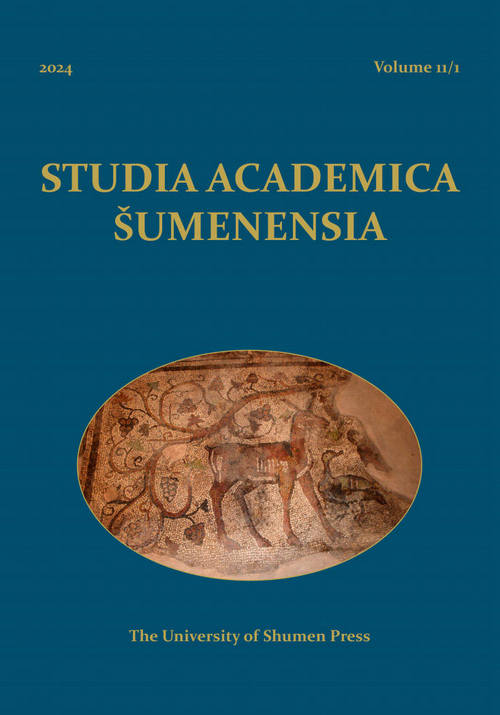New view on the “Dark Ages”, one little known period in the Constantinople History
New view on the “Dark Ages”, one little known period in the Constantinople History
Author(s): Alexander StankovSubject(s): History, Archaeology, 6th to 12th Centuries
Published by: Шуменски университет »Епископ Константин Преславски«
Keywords: “Dark Ages”; transition; Constantinople; Byzantine Empire; crisis; Middle Ages
Summary/Abstract: The “Dark Ages” for the Byzantine Empire is a little known period of its history, especially in their role of a connecting link – a transition between the Late Antiquity and the Middle Ages. The coming change is sudden, rugged, unexpected and radical and comprises both the thinking of the population and its architectural manifestations. The results of it are most clearly visible in the imperial capital Constantinople. The main change, as a whole, is expressed in the evolvement of the role of public places. The big public spaces, such as fora, baths, public buildings, lose the function they perform in the Antiquity and are reconstructed, assuming a new function corresponding to the new bigger reticence of the processes in the society. The population decrease in the capital is a matter that shall be re-examined and in spite of all changes it is not so drastic as considered so far. Changes in architecture were big. Any civil construction in the capital was stopped. After its resumption two centuries later at the beginning of 9th century, it underwent radical changes in the shape and size of the new buildings that are by far smaller in terms of size and scale than the monumental construction in the middle ages. The external and internal problems of the empire drastically changed the face of the Byzantine society and the appearance of the imperial capital, but also proved its stability and the advantages it had, keeping and using its ancient cultural heritage and tradition.
Journal: Studia Academica Šumenensia
- Issue Year: 11/2024
- Issue No: 1
- Page Range: 193-215
- Page Count: 23
- Language: English

